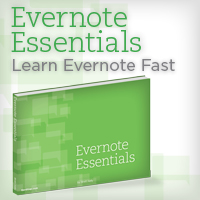As the Christmas holiday approaches, I can scarcely imagine the innumerable throngs of people hoping to find some type of tablet computer under the tree with their name on it. Recent reports would indicate that the vast majority of these people are pining after an iPad, but I have no doubt that many people have their eye on something like the Kindle Fire or whatever the newest Android tablet is (beside the Kindle Fire, of course).
The thing is, when somebody gets a tablet, they aren’t just making a subtle gesture as to their preference of platform—they’re also preparing to invest in the content that is, in many ways, coupled to that platform.
I’m an Apple guy. With the exception of my Kindle 3 and a handful of devices I use for work, I spend all of my time with Apple devices. It’s probably fairly obvious that I keep my media in iTunes because that’s what Apple devices are designed to talk to. I’ve purchased a handful of albums from Amazon’s MP3 store over the years, but the lion’s share of my media has either been ripped from physical media or purchased from the iTunes Music Store. I’d venture to say that I’m not exactly unique in my media+hardware configuration.
If I decided tomorrow that I was done with Apple products and services—say I had some sort of ethical problem with Apple or maybe Tim Cook slashed my tires or something—what would I do? If I buy a Kindle Fire and decide to make that my primary tablet computer, how would I make all of my media accessible to it?
Of course it wouldn’t be impossible, but it would be kinda hard; hard enough to give a non-technical user a serious case of heartburn, I reckon.
My point is that when you buy a tablet computer, you’re buying into the software vendor’s preferred means of acquiring, managing and shuffling media.
Let’s take a closer look at each of the big four classes of media that are available to most tablets: music, movies, books and applications (yes, I think of applications as media).
Books
Thanks to the Kindle app for Android and iOS, this one is relatively painless unless you’ve invested heavily in books from the iBooks store. If you have, then switching away from iOS means that you can bring precisely zero of your books with you to your new platform home.
Music
Probably the biggest media category, this one is more of a minor pain in the ass than an outright impossibility. Even though music from the iTunes Music Store is now DRM-free and—from what I understand—can play on most Android devices without issue, there’s still a barrier to entry here, particularly for non-technical users. If you’re moving from an iPad to, say, a Kindle Fire, you’ll either need to upload all of your music to Amazon’s CloudPlayer service or drag everything onto the device while it’s connected via USB. There are apps that make this syncing thing easier for Android owners, but making this type of transition will require some Googling and some tinkering.
Movies & TV Shows
This is where the flexibility dance comes to a grinding halt. Unless your digital video library consists entirely of content you’ve ripped from DVDs or downloaded via BitTorrent, any movie you’ve purchased from one vendor (Amazon, Apple, etc.) will necessarily not play back on a different device. Apple and Amazon beat the music industry into submission and won the DRM war on that front, but movies and television are a different story altogether. I’ve purchased a handful of movies and a few dozen television shows from iTunes and there’s not a snowball’s chance in hell they’d play on a Kindle Fire or any other non-Apple device without running them through some kind of DRM-removal software.
Applications
A technical limitation more than a vendor-imposed one (since apps written one OS run on an entirely different software stack than those written for another OS), this is another sticky area. I own a license for Angry Birds on my iPad (it’s a fun game - shut up), but naturally I can’t carry that over to a non-Apple device or platform. If I want to play Angry Birds on a Motorola Xoom, I’ll need to fire up the Android Market and buy it again. Ditto for the Kindle Fire.
Personally, I own many dozens of iOS apps, several of which are on the more expensive side (relative to most). Disregarding that most of these apps simply aren’t even available on Android, having to buy them all again would be quite costly. Either way, though, none of the apps you own on one platform will come with you to the next one.
Frankly, this is all sort of fine with me. As previously stated, I’m pretty firmly situated in the Apple ecosystem and that’s a decision I made with open eyes. What’s a little unsettling, I think, is that much of the content and software people buy from the hardware or software vendor that purveys their device is inextricably tied to the platform on which it is read, played back or utilized — and most regular people don’t realize it. When you choose to adopt a platform, you are—in many respects—choosing to adopt that platform’s media and software, too.

